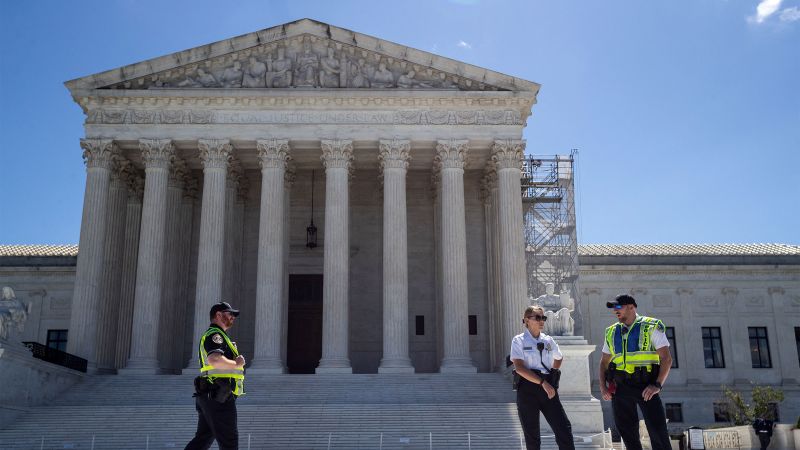Washington CNN —
The Supreme Court on Wednesday declined to lift a blanket injunction on President Joe Biden’s student loan forgiveness plan, which was intended to slash monthly payments and speed up the path to loan forgiveness.
The Supreme Court rejected a request from the Biden administration to restart the program after a lower court blocked it this summer in a lawsuit brought against it by Republican-led states.
There was no particular opposition to this brief order.
Wednesday’s order does not immediately affect the 8 million borrowers currently enrolled in a plan introduced about a year ago known as Savings on a Valuable Education (SAVE). In response to the deepening legal battle over the plan, the Education Department last month granted borrowers an interest-free grace period during which they don’t have to make monthly student loan payments.
The White House vowed late Wednesday to “continue to vigorously defend the SAVE Plan,” which it said has so far allowed 4.5 million student loan borrowers to “make zero-dollar monthly payments.”
“We will not stop fighting efforts by Republicans in Congress to raise student loan costs for millions of our constituents,” White House spokesman Angelo Fernandez Hernandez said in a statement.
Up-to-date information for borrowers can be found on the Department of Education website.
“While we await the Eighth Circuit Court of Appeals’ final decision, we will seek to minimize further harm and disruption to borrowers,” the department said in an emailed statement.
“We are disappointed with this decision because lifting the injunction would have meant lower payments and other benefits for borrowers across the country,” the department said.
In an unusually worded brief order on Wednesday, the court said it expected the 8th U.S. Circuit Court of Appeals, which is considering challenges to the plan, “to rule with appropriate expedition,” suggesting it wanted the proceedings to finish in lower courts before intervening in the emergency case.
The fate of the plan, which the Congressional Budget Office estimates would cost $276 billion, remains unclear as the court considers two lawsuits. Last month, three states — Alaska, South Carolina and Texas — asked the Supreme Court to uphold a partial block on the plan while a larger state lawsuit proceeds. In a separate order on Wednesday, the court denied that request as well.
Student loan forgiveness was a key element of Biden’s 2020 presidential campaign and a concession to progressives who supported a more liberal candidate in the Democratic primary, but the White House has been stymied multiple times, including in a landmark ruling last year in which the court’s 6-3 conservative majority found that Biden had exceeded his authority in trying to forgive hundreds of billions of dollars in student loan debt.
SAVE is one of the Biden administration’s most significant student loan policies, and the Education Department implemented the repayment plan last year after the Supreme Court struck down the Biden administration’s more comprehensive one-time student loan forgiveness program.
However, the government’s most generous student loan repayment plan, currently the SAVE plan, is based on different law than the one at issue in this lawsuit. Low-income borrowers who enroll in the SAVE plan have lower monthly payments and a faster path to student loan forgiveness than borrowers in other repayment plans.
Among other things, the plan would raise the maximum income limit for those who need to make loan payments, lower monthly loan payments from 10% to 5% of eligible borrowers’ disposable income, and shorten the repayment period for certain small loan borrowers, allowing them to forgive those loans sooner.
This story has been updated with additional details.



